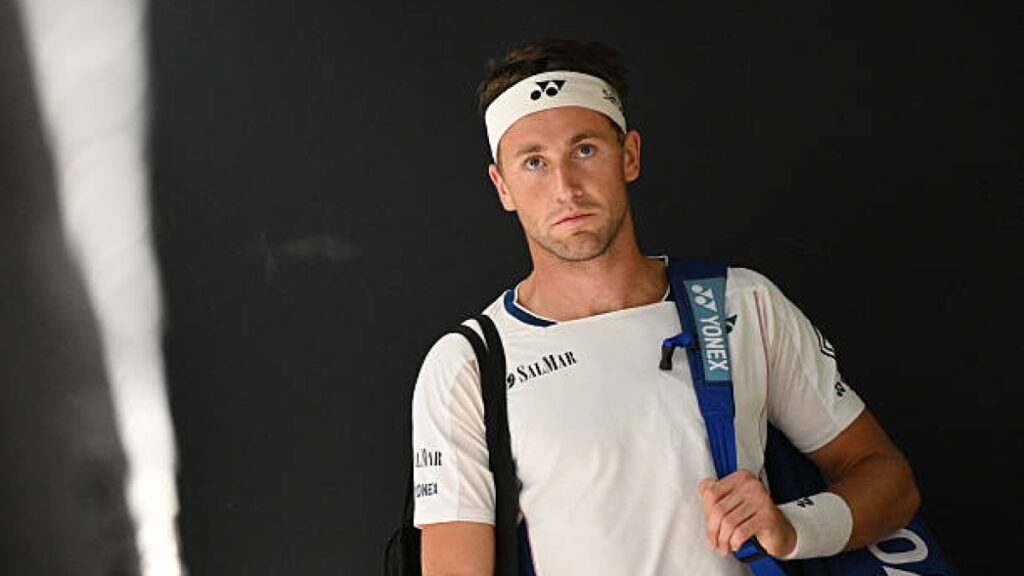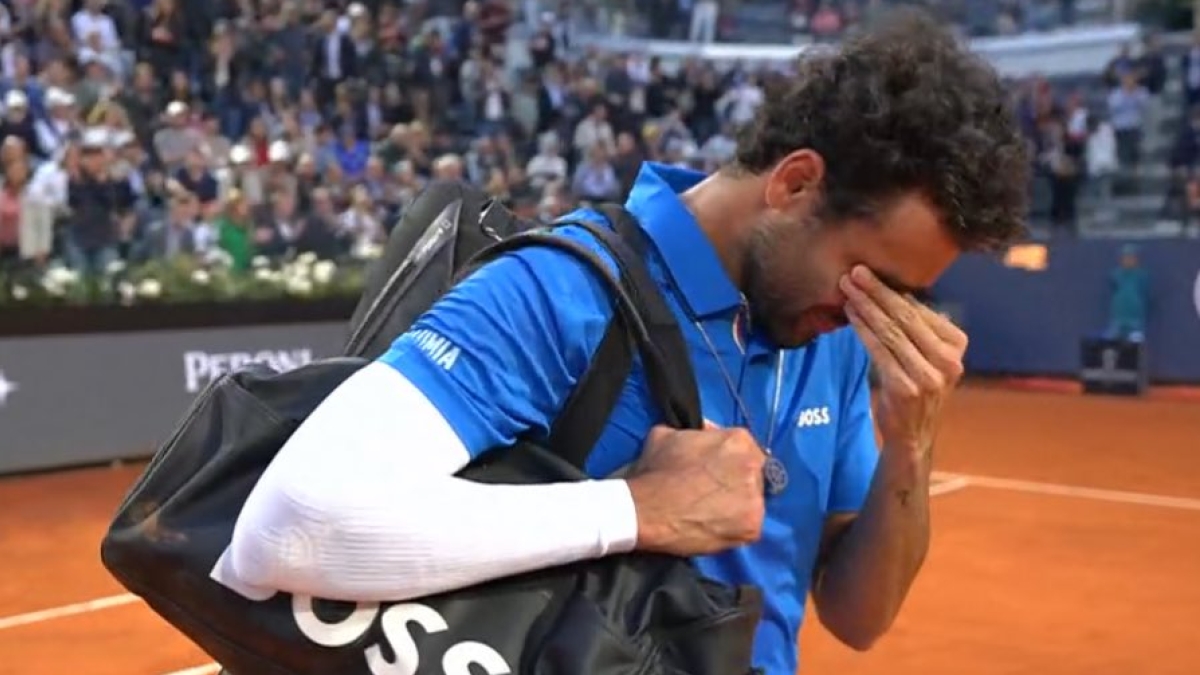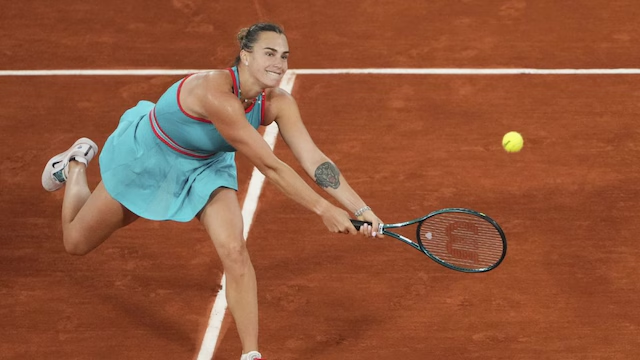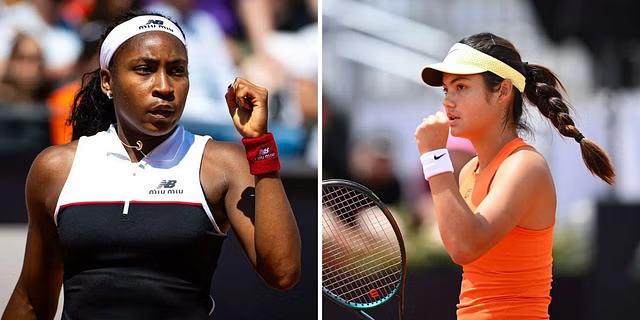Rome was supposed to roar for Matteo Berrettini. The Italian capital, filled with passionate fans and national pride, had long awaited the return of one of its favorite tennis sons. But just hours before his highly anticipated match against World No. 6 Casper Ruud at the 2025 Italian Open, Berrettini shocked fans with a sudden withdrawal. Now, the 28-year-old has broken his silence—and his revelation is as emotional as it is eye-opening.
A Homecoming Denied
When the draw was announced, tennis fans buzzed with excitement over a potential blockbuster showdown between Berrettini and Ruud in the early rounds. Berrettini had fought through injuries and setbacks to make it to this point. The Foro Italico was ready to erupt with every ace, every fist pump, every emotional moment from their homegrown star.
But the anticipated roar never came.
Hours before stepping onto court, Berrettini officially withdrew, citing physical issues. Many assumed it was just another unfortunate chapter in his battle with injuries. But in a heartfelt statement the following day, Berrettini explained the true reason for his withdrawal—and it had little to do with a single body part.
“It Wasn’t Just Physical. It Was Mental.”
In a social media video that quickly went viral, Berrettini addressed his fans directly:
“This isn’t easy to say, especially here in Rome. I’ve always said this tournament means the world to me. But I wasn’t ready—not just physically, but mentally. I pushed myself to come back, maybe too quickly, and I realized on match day that I wasn’t okay.”
It was a candid admission that surprised even seasoned tennis observers. Berrettini has always been open about the physical toll of the sport, but this was the first time he publicly spoke about the mental and emotional weight that comes with it—especially when trying to perform in front of your home crowd.
The Toll of the Comeback Trail
Berrettini has battled a string of injuries over the past two seasons—wrist, abdomen, and more recently, a nagging ankle issue that sidelined him during the early hardcourt swing of 2025. Each recovery was grueling, each comeback filled with pressure—not just from outside voices, but from himself.
Rome was supposed to be different. It was the target he had circled for months. Friends, family, and fans would be there. But that pressure became unbearable.
“I didn’t sleep the night before. I kept asking myself if I was doing the right thing. When I woke up, my body felt off, but my mind felt worse. I realized I couldn’t compete with half of myself against a player like Casper.”
It was a refreshingly honest admission in a sport that often glorifies stoicism and silence over vulnerability.

Casper Ruud Reacts With Class
Casper Ruud, known for his sportsmanship and respectful demeanor, responded with empathy upon learning of Berrettini’s decision:
“I have a lot of respect for Matteo. It’s never easy to pull out, especially at home. It takes courage to do what he did.”
Ruud advanced by walkover but emphasized that tennis is a mental sport as much as a physical one.
“We all go through it—injuries, doubts, expectations. Matteo is strong. He’ll be back stronger.”
A Bigger Conversation in Tennis
Berrettini’s withdrawal isn’t just a personal setback—it adds to a growing conversation about the mental health of professional athletes. From Naomi Osaka to Paula Badosa, from Nick Kyrgios to Iga Swiatek, more players are opening up about the emotional and psychological demands of the sport.
What Berrettini did—stepping back when not mentally ready—is now seen not as weakness, but wisdom.
And fans noticed. Social media flooded with messages of support:
“You showed real strength by listening to your body and mind. We’ll always be behind you, Matteo.”
“Mental health matters. Thank you for being honest, even when it hurts.”
What’s Next for Berrettini?
In the same message, Berrettini confirmed that he plans to regroup and prepare for Roland Garros and the grass court season—where he’s had the most success in his career. Wimbledon, where he made the final in 2021, remains a key target.
“I don’t want to keep chasing points or moments that aren’t authentic. I want to be 100%—physically and mentally. That’s the only way I can truly represent Italy, myself, and this sport I love.”
He also hinted at changes in his training approach:
“We’re reassessing everything—from scheduling to rehab to mindset. I’ve always played with my heart, but now I want to play with balance, too.”
Rome’s Reaction: From Disappointment to Pride
There was heartbreak in Rome when the withdrawal was announced. Some fans had traveled across the country for the chance to see him play. But Berrettini’s emotional openness quickly turned the disappointment into pride. Many fans stayed for the match session, chanting his name even in his absence.
“You’ll always be our champion,” read one handmade banner at the stadium the next day.
The Italian Tennis Federation also released a statement in support of Berrettini, emphasizing their commitment to athlete well-being beyond just performance.
More Than a Tennis Player
What Berrettini proved in Rome is that athletes are more than their statistics. More than rankings or results. He reminded fans and media alike that even the strongest bodies can falter when the mind is burdened.
He also became a role model in a different way—not through victories, but through vulnerability.
“This isn’t how I wanted to leave Rome,” Berrettini concluded. “But maybe this is the version of me people needed to see.”

Final Thoughts
Matteo Berrettini’s withdrawal from the Italian Open wasn’t just another injury story. It was a human moment—raw, honest, and deeply relatable. It pulled back the curtain on the intense pressure elite athletes face, especially when trying to meet the expectations of an entire nation.
While fans didn’t get the epic match against Ruud they hoped for, they witnessed something arguably more powerful: a star athlete choosing self-care over spectacle. That, in itself, might be Berrettini’s most important message yet.
As we look ahead to Roland Garros and Wimbledon, one thing is clear—Berrettini isn’t done. He’s just hitting reset. And when he returns, it will be not just with his serve and forehand, but with a renewed sense of purpose.
We’ll be watching. And cheering even louder.


